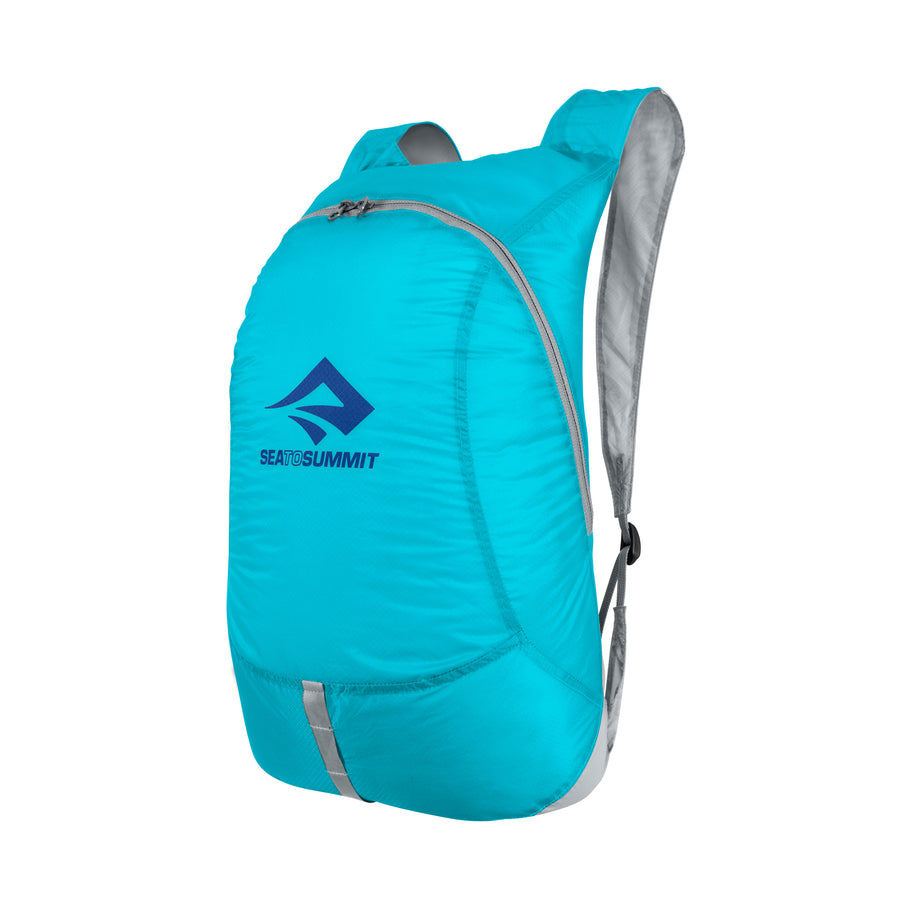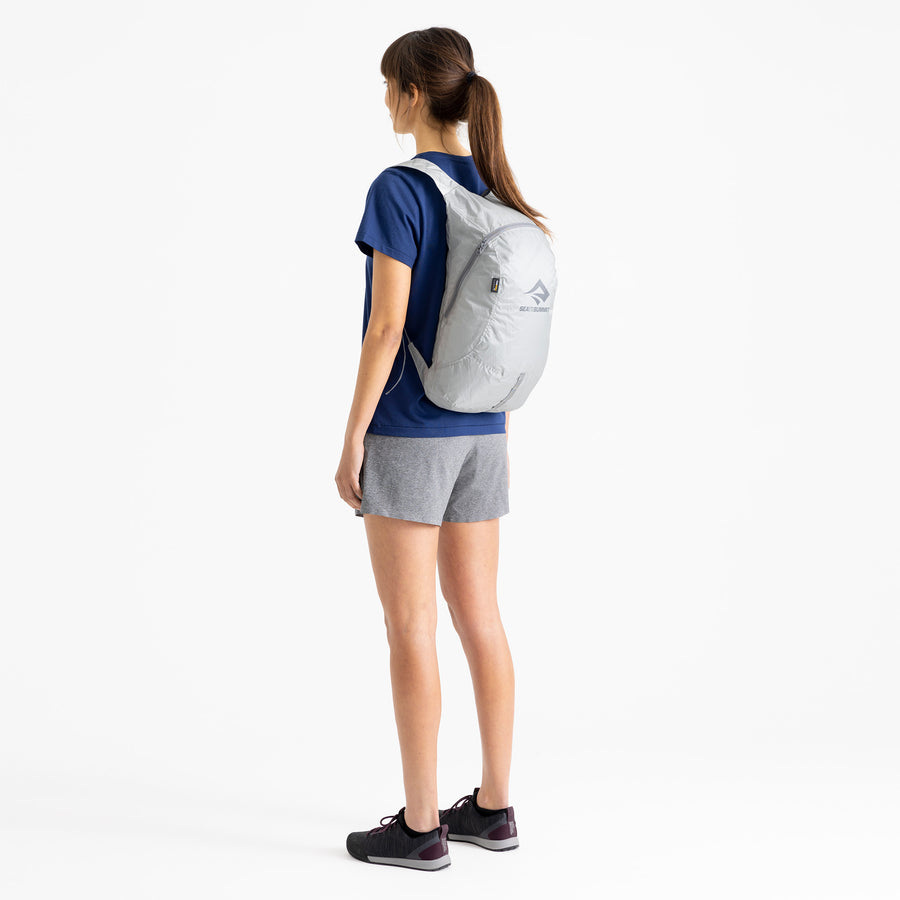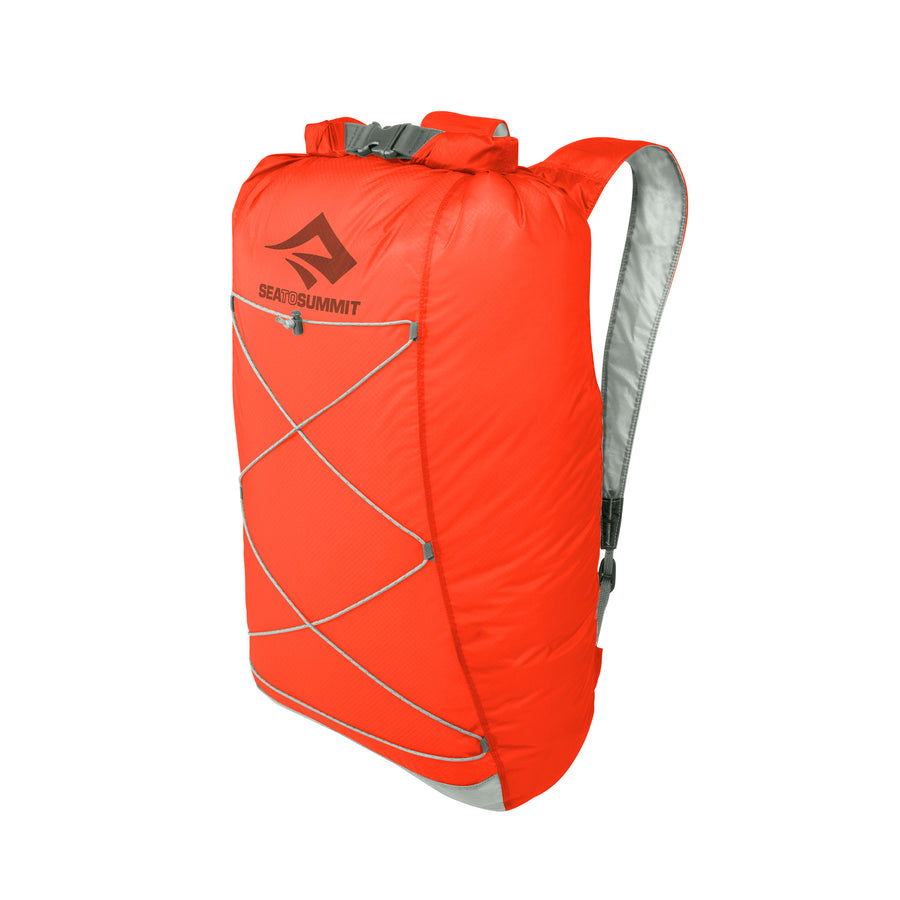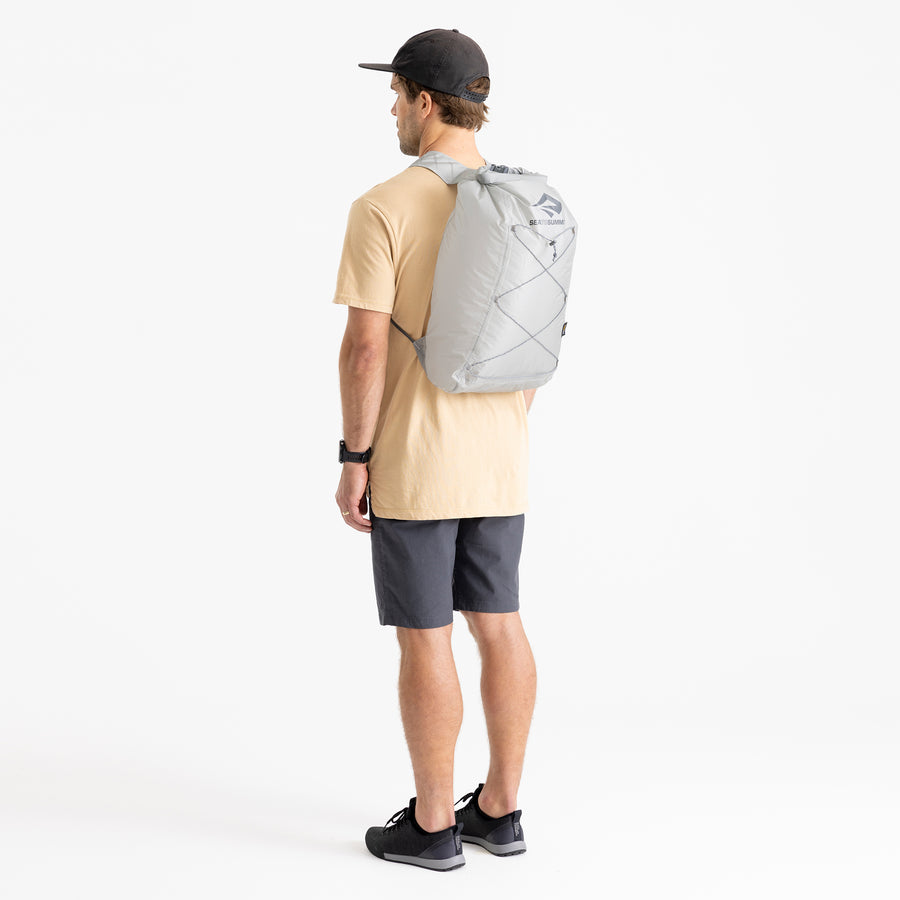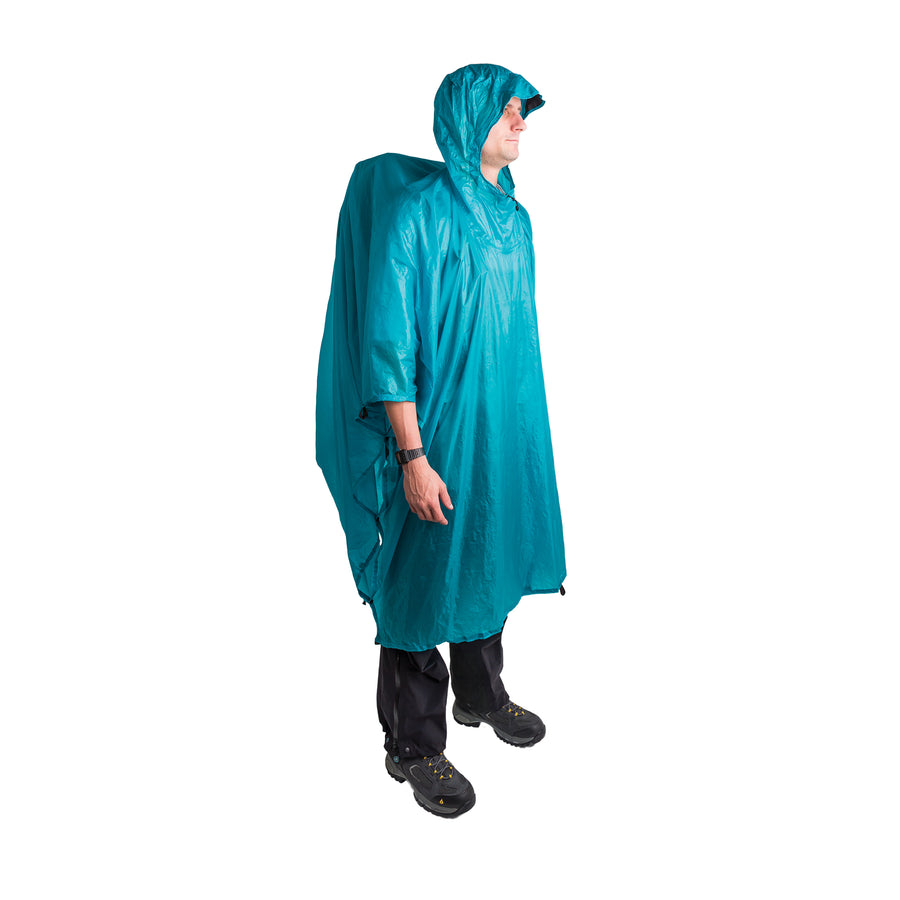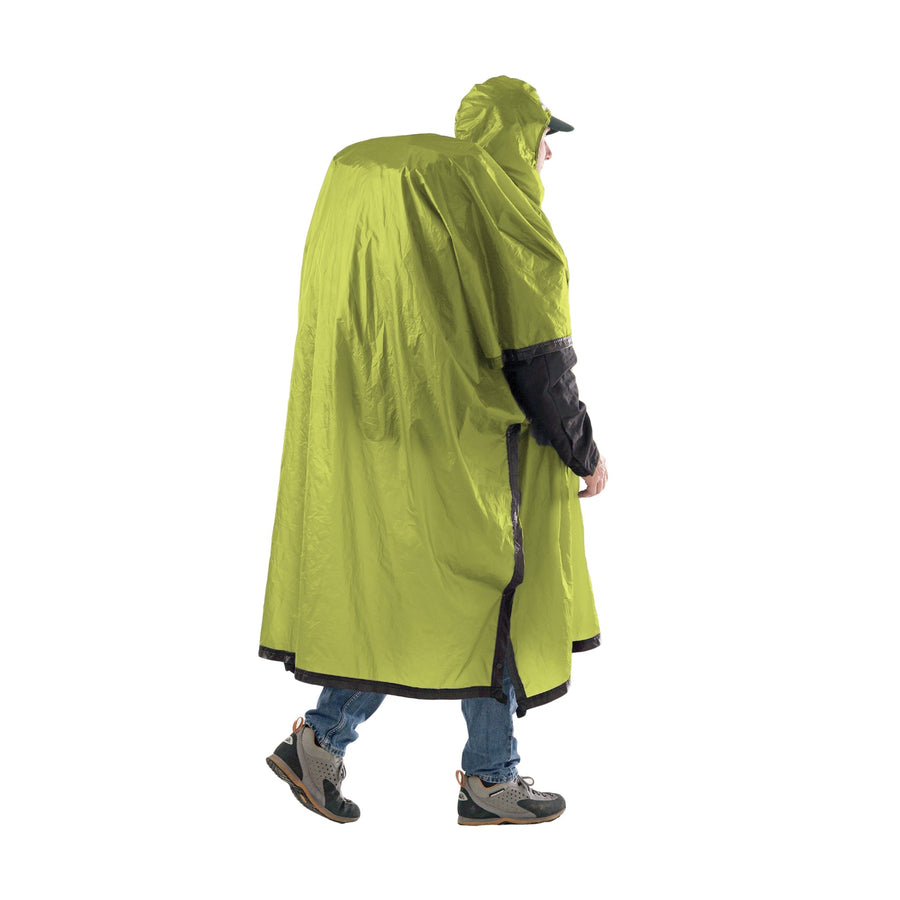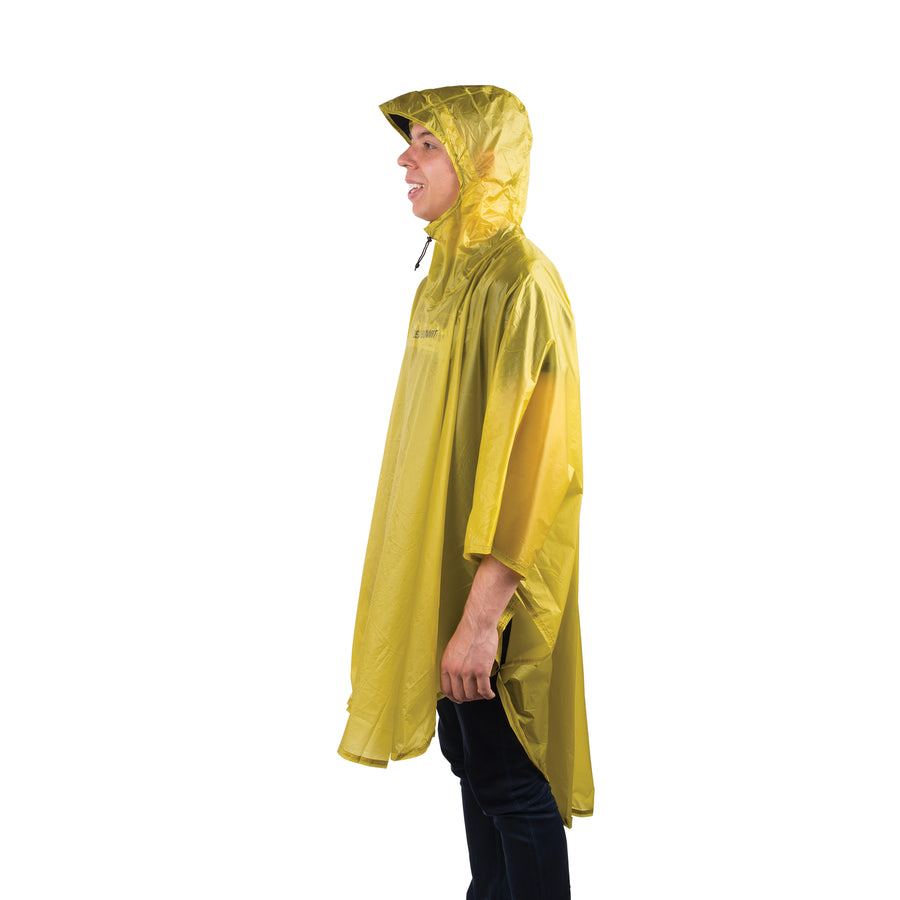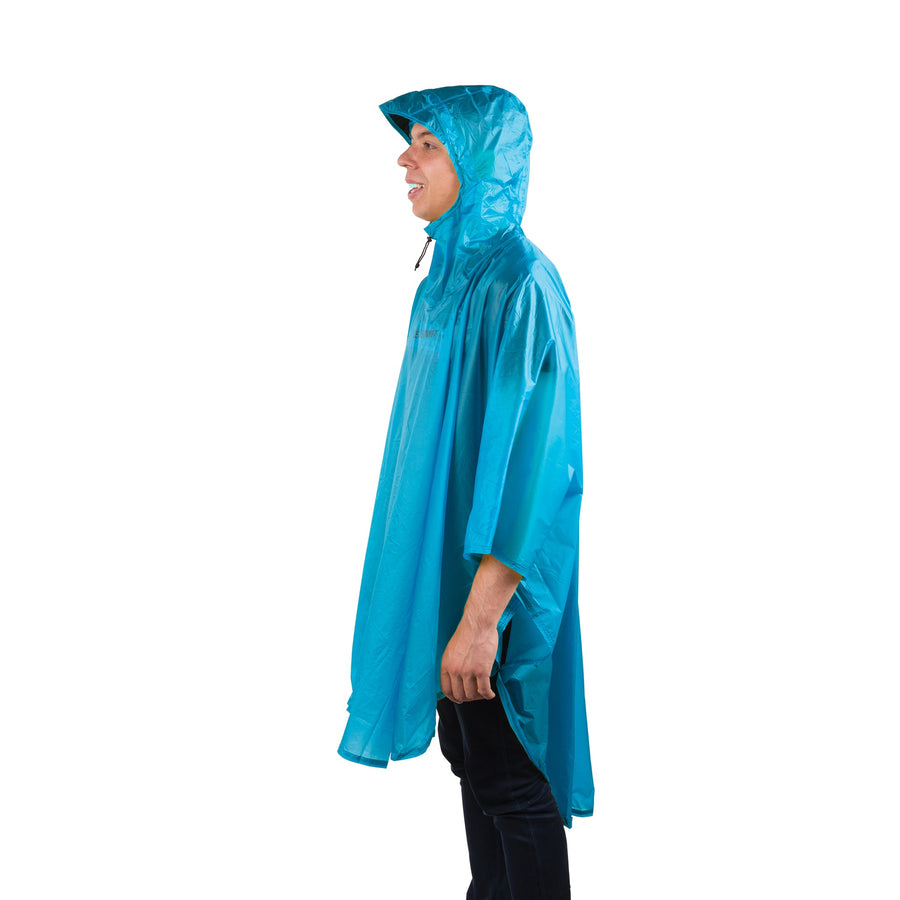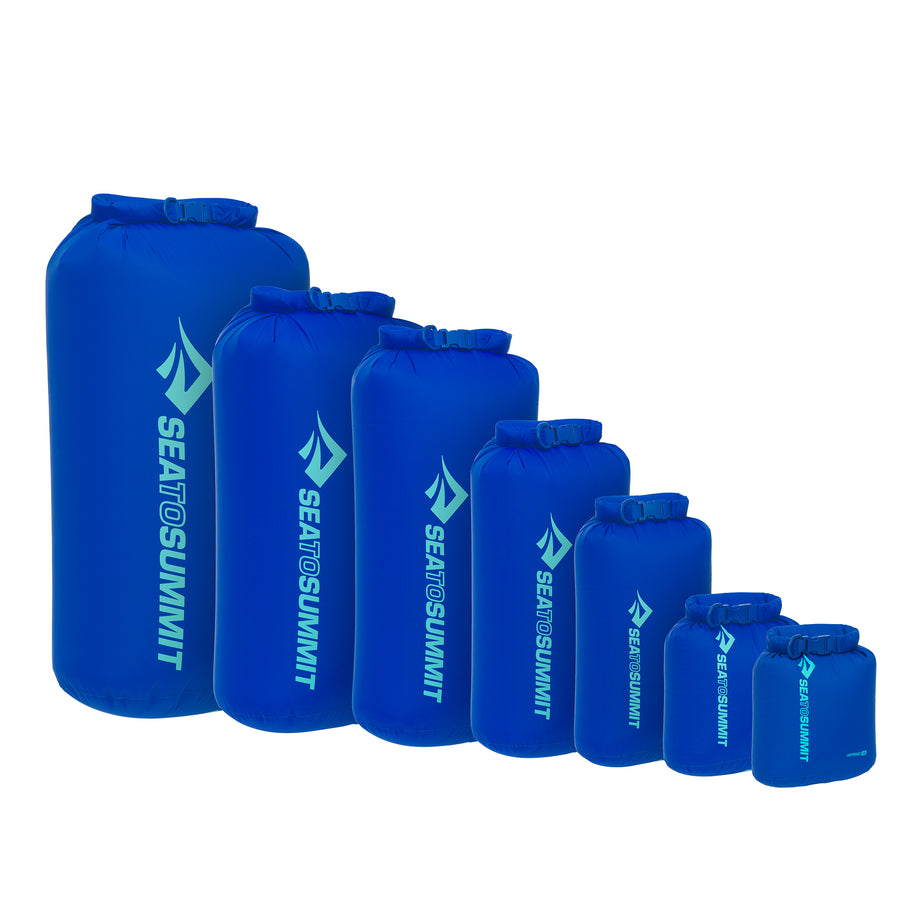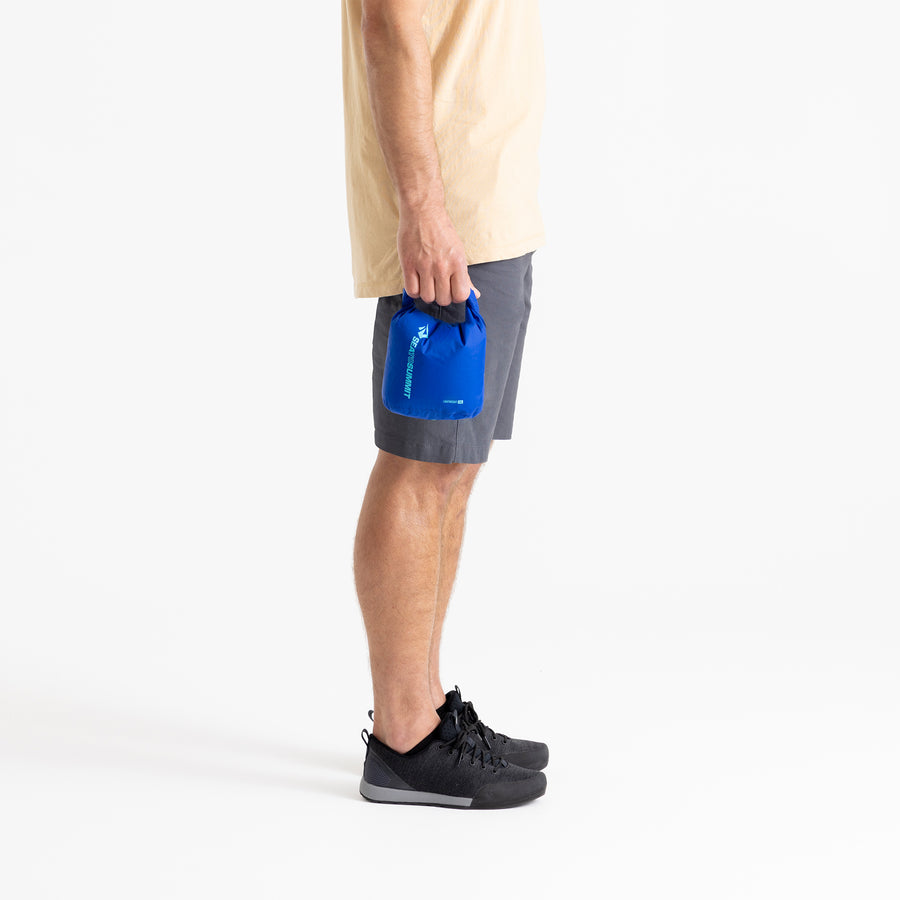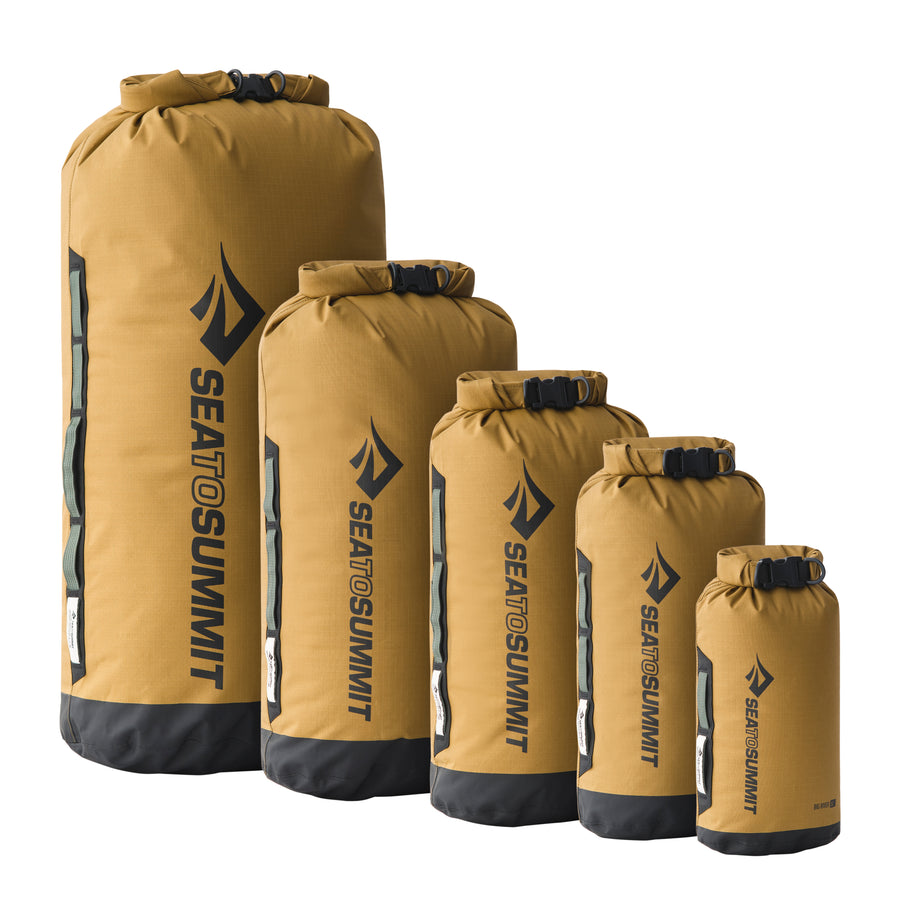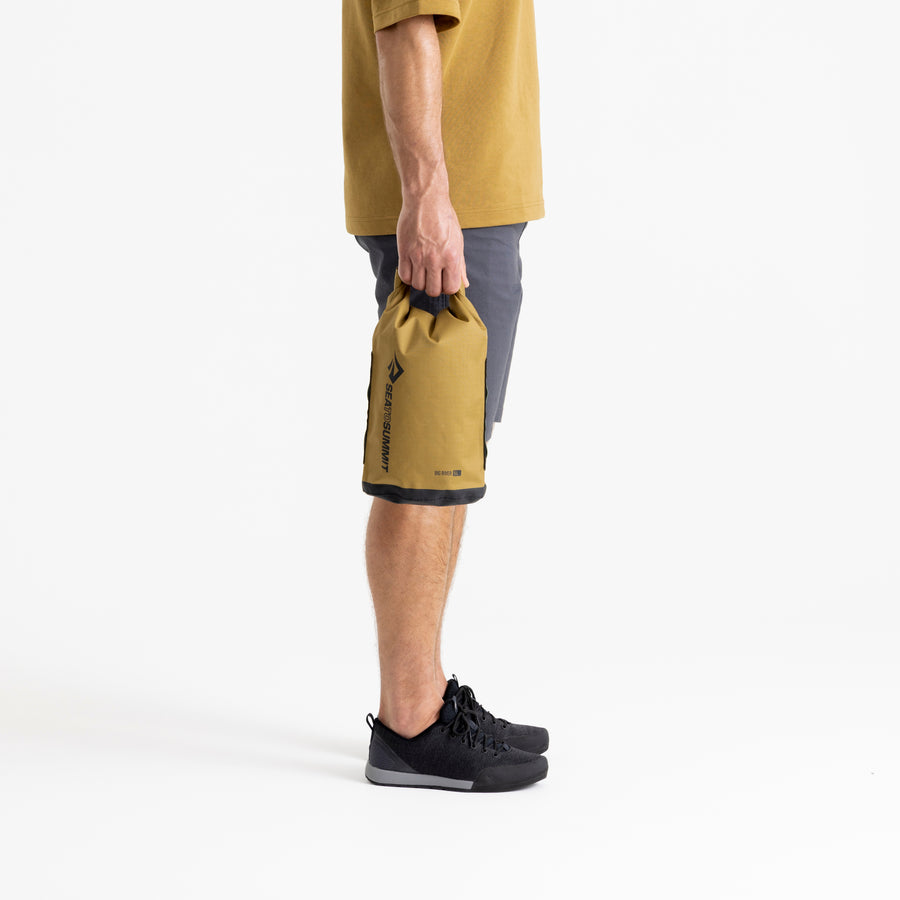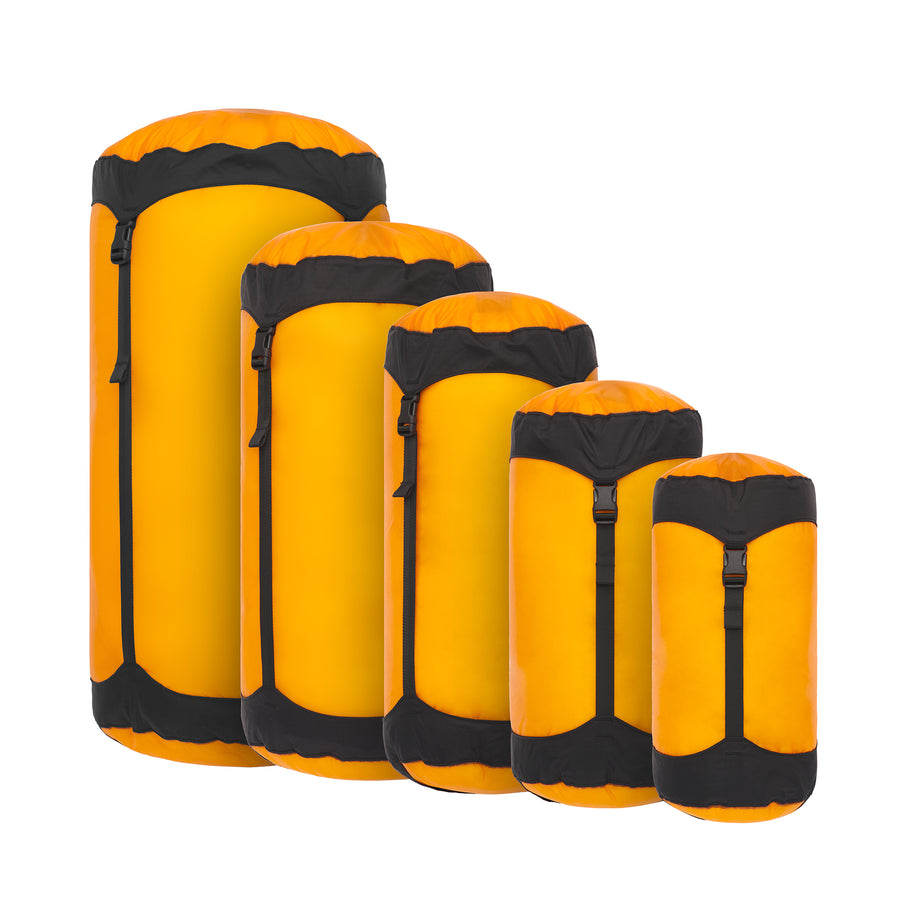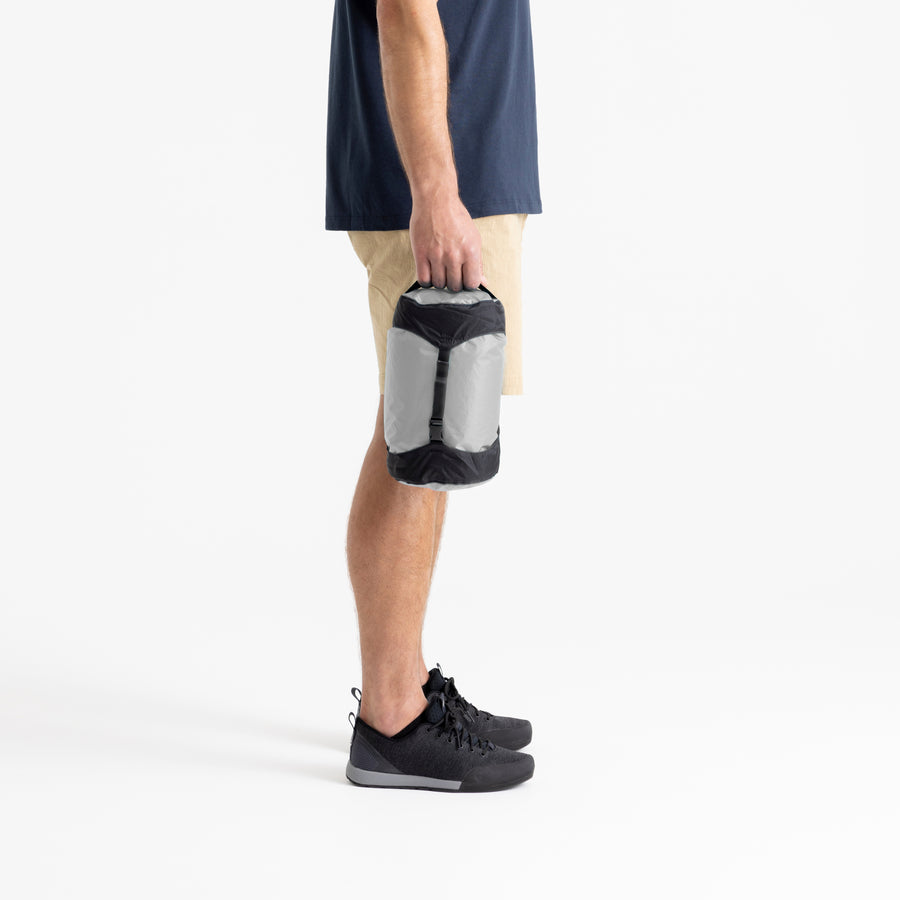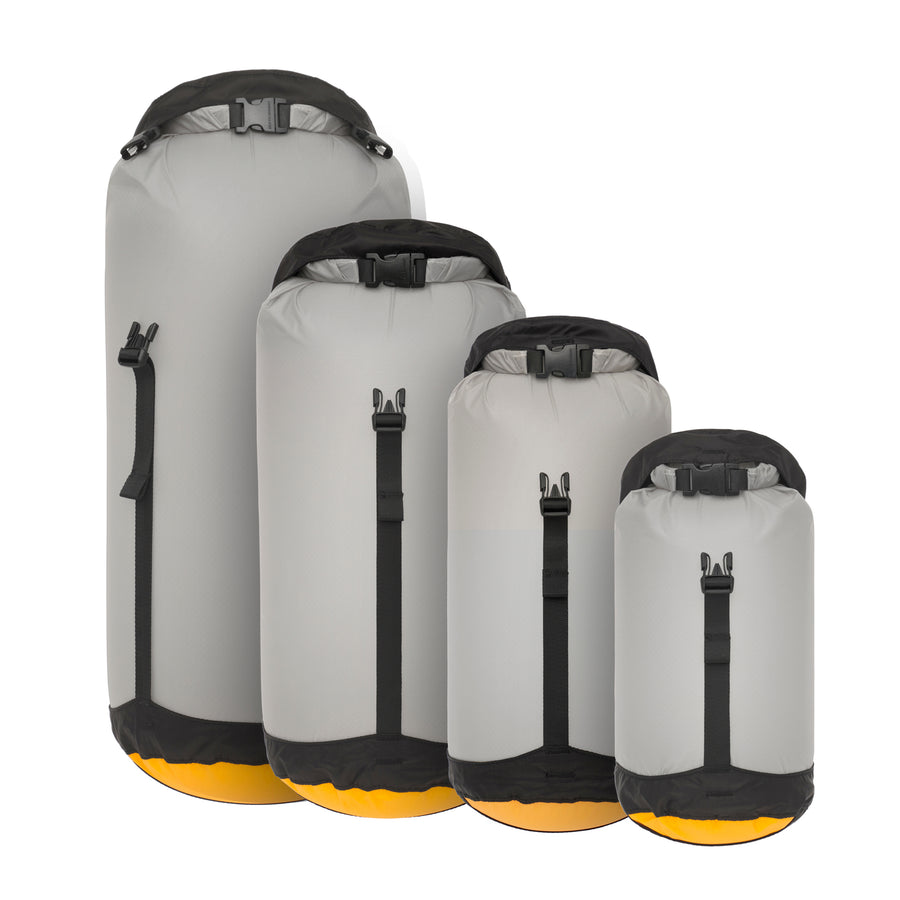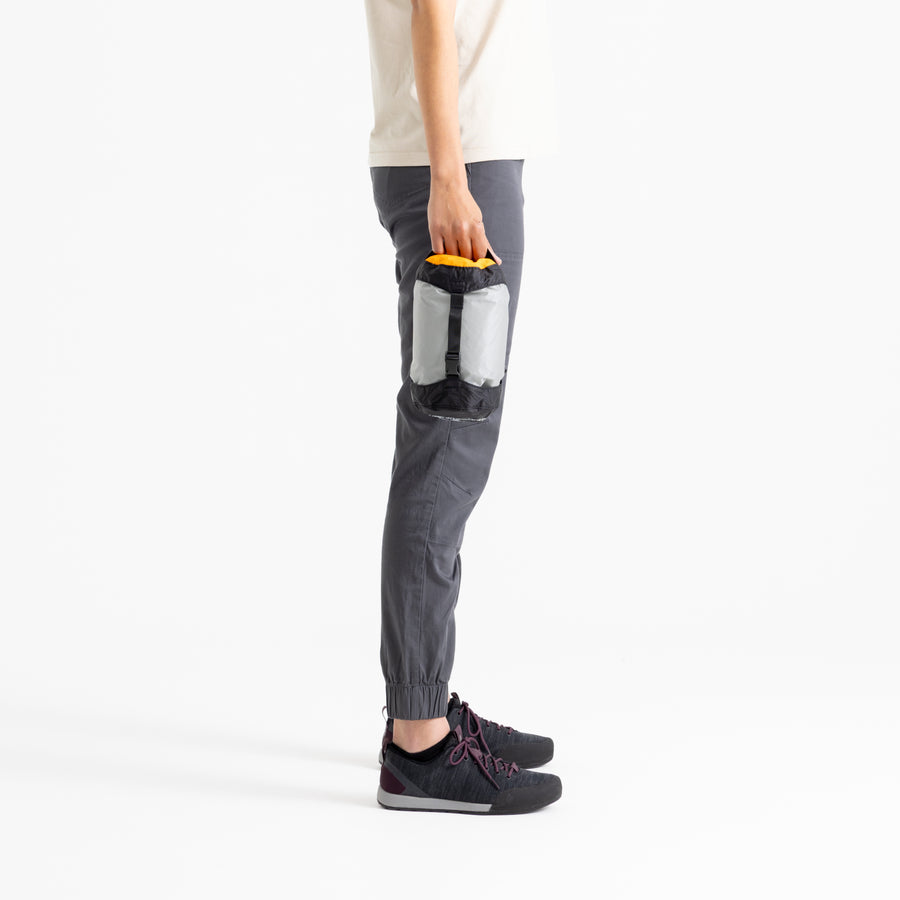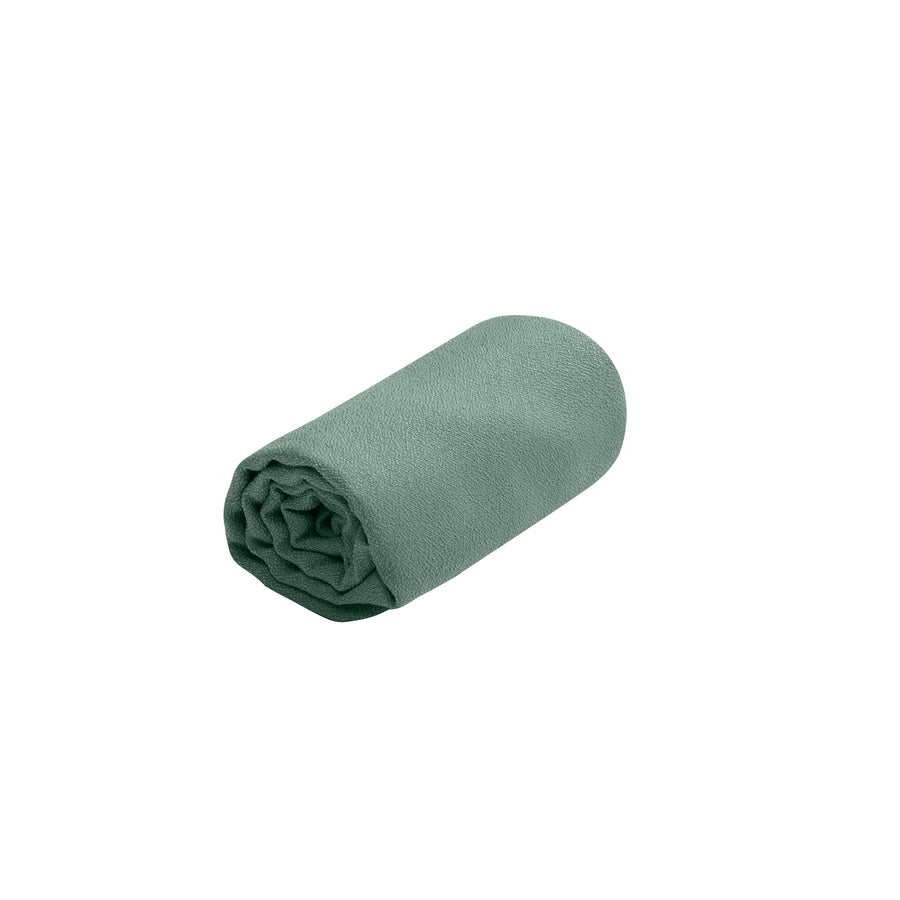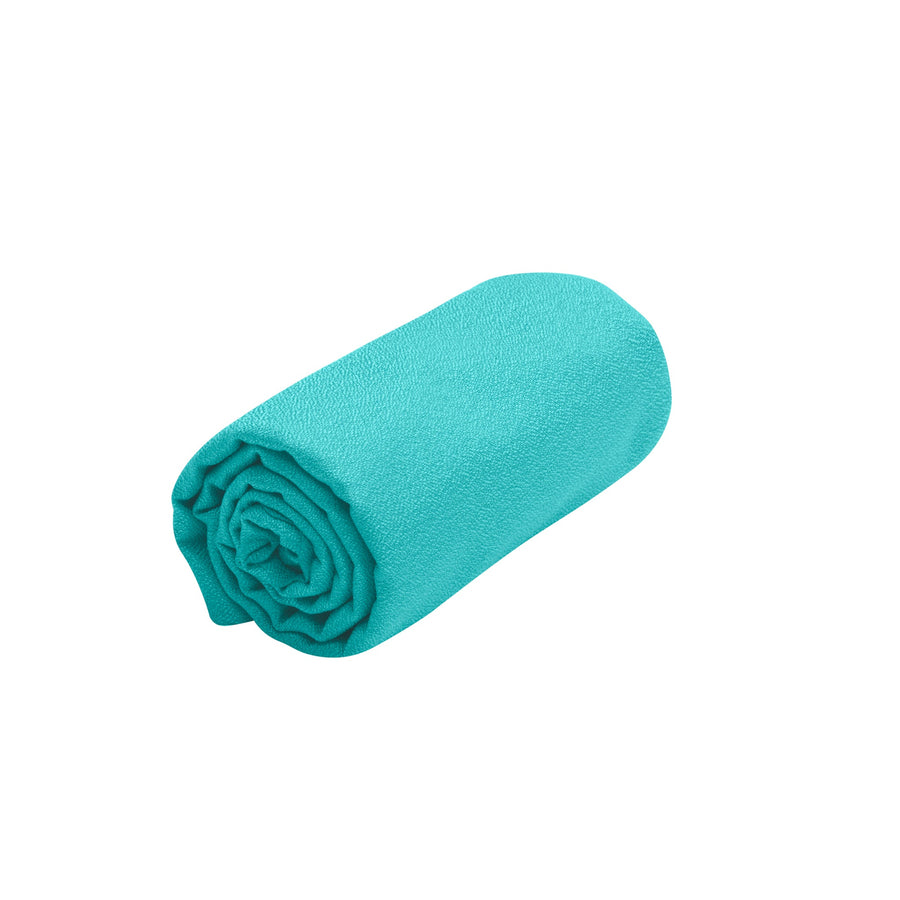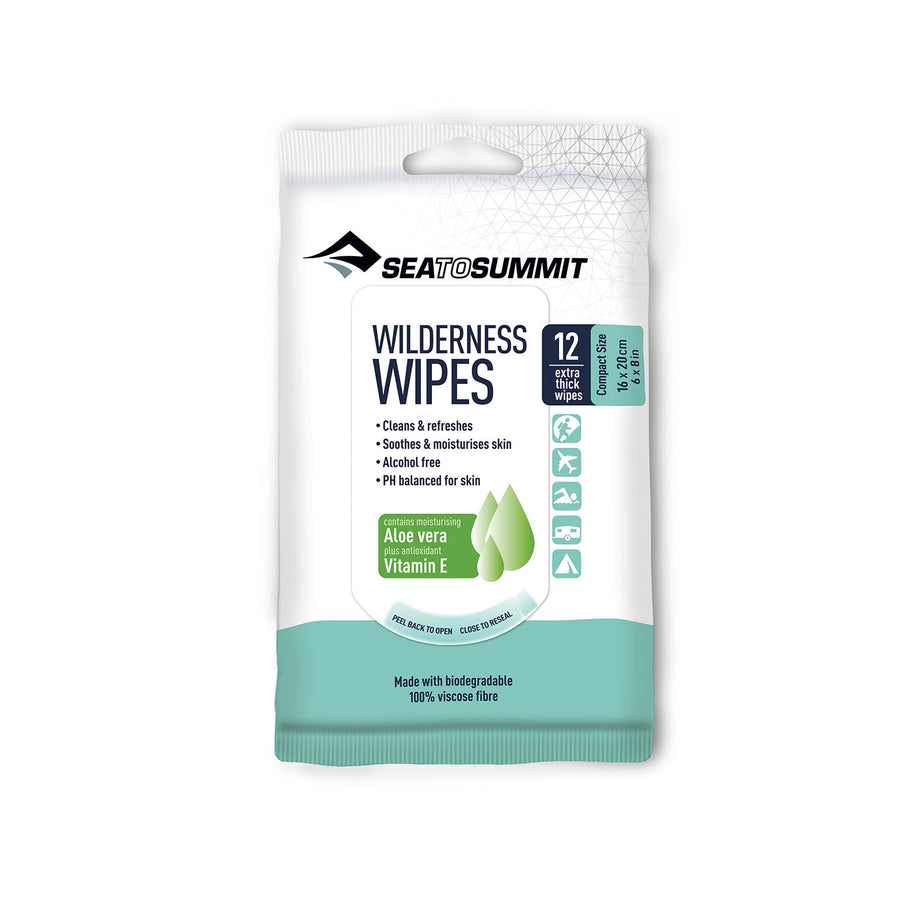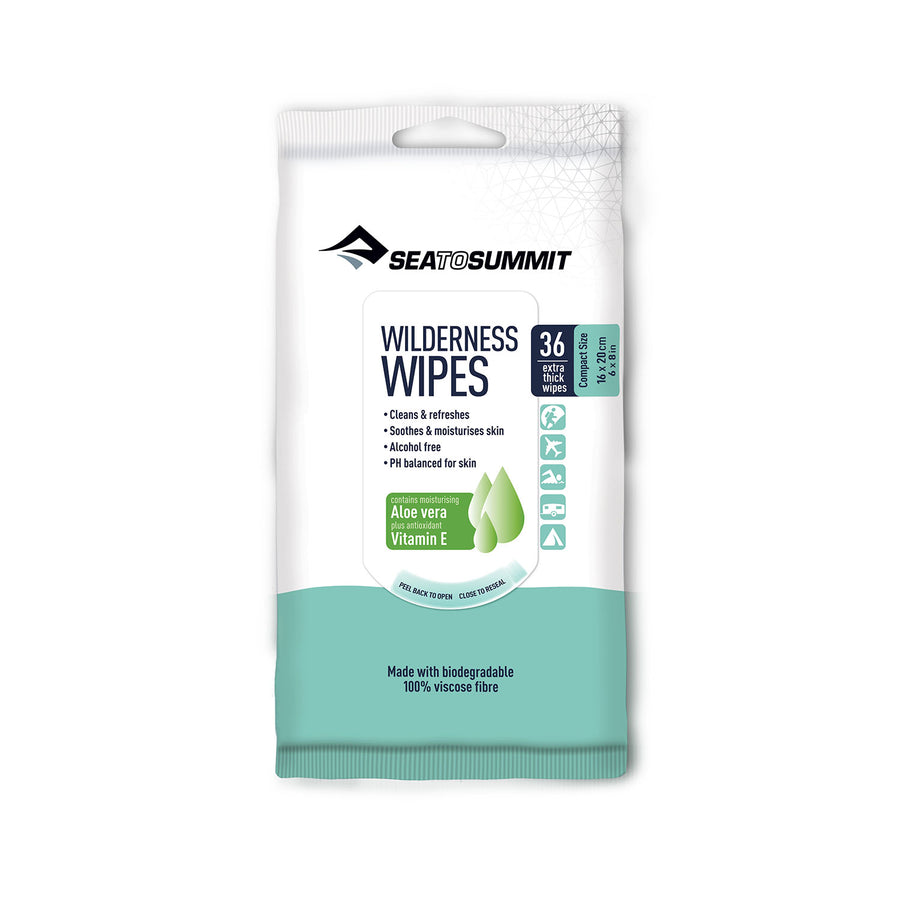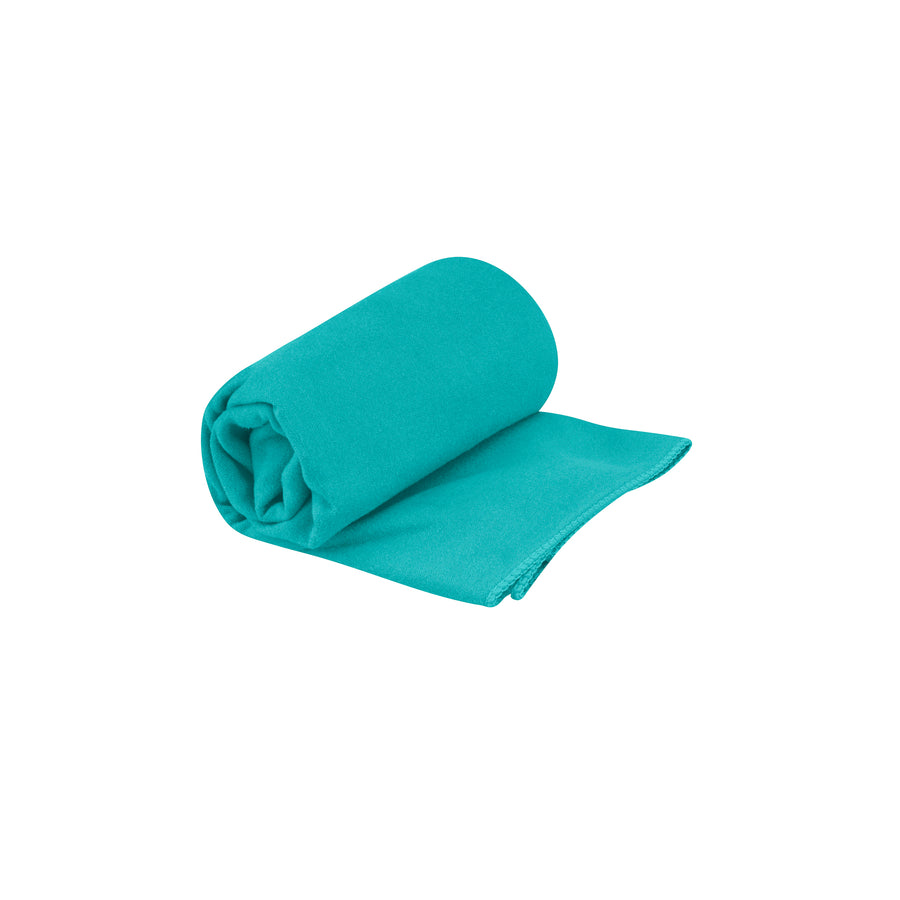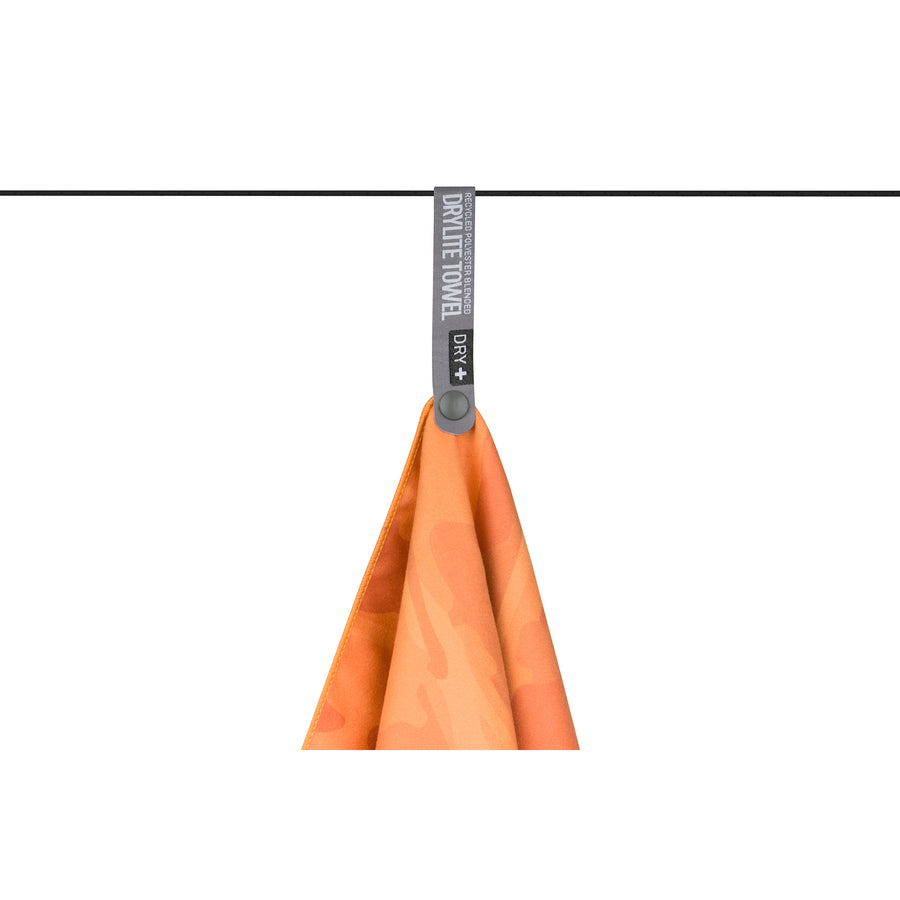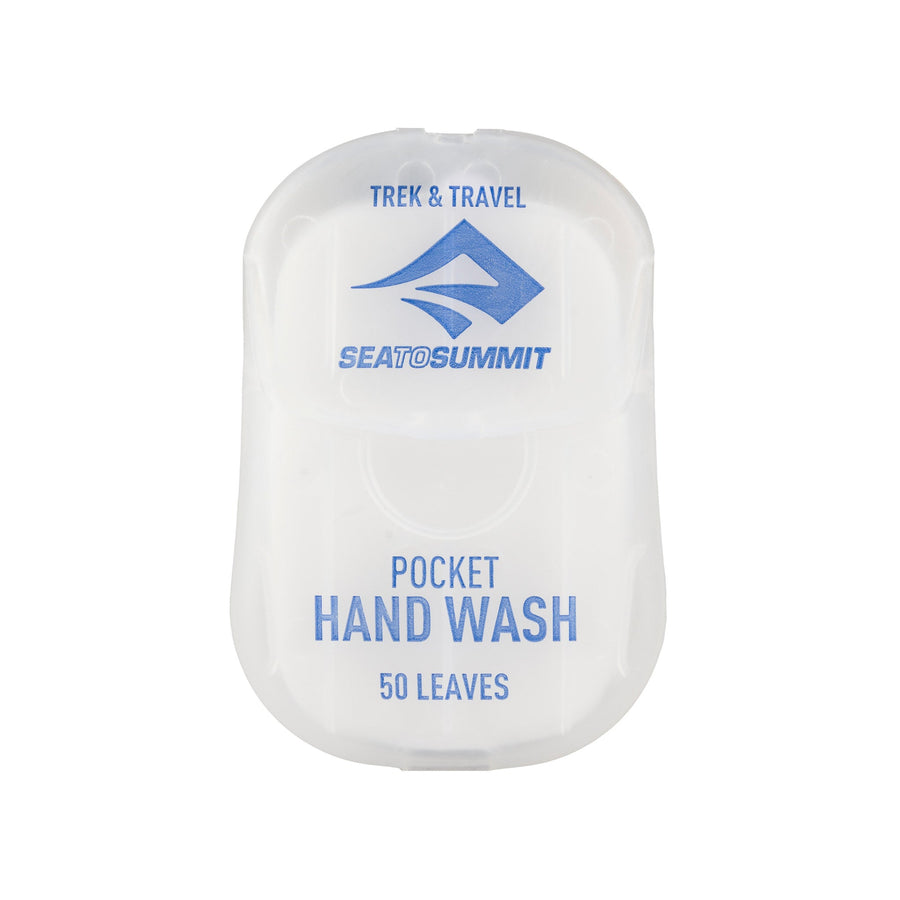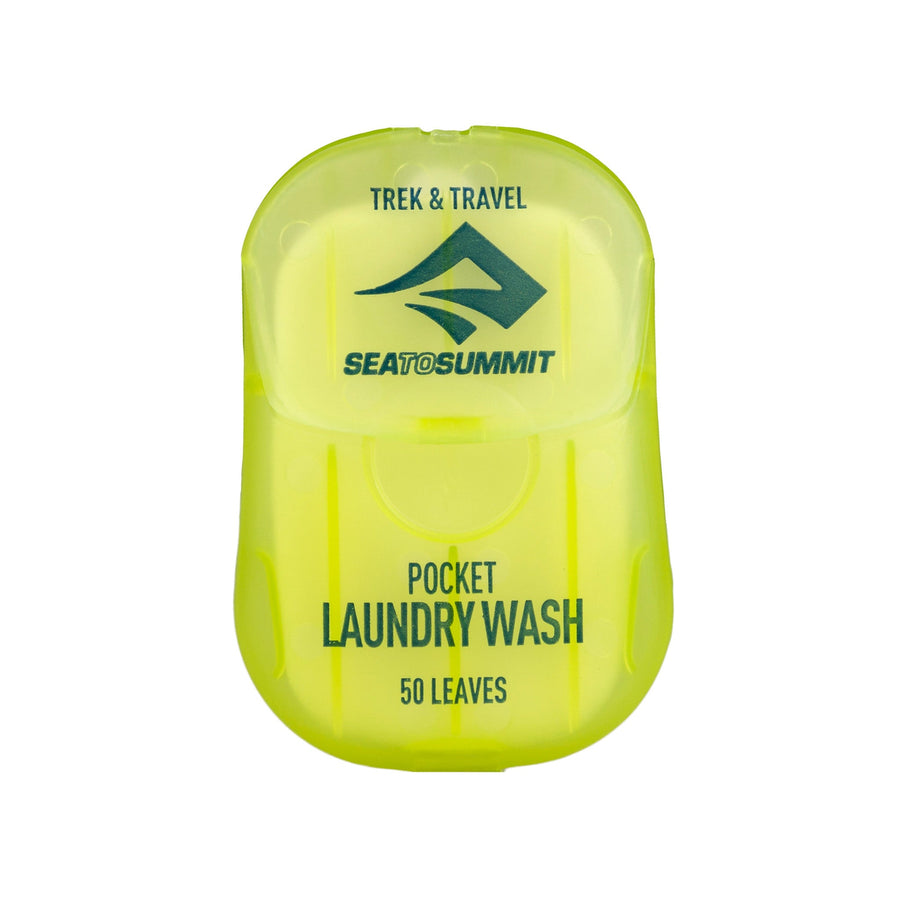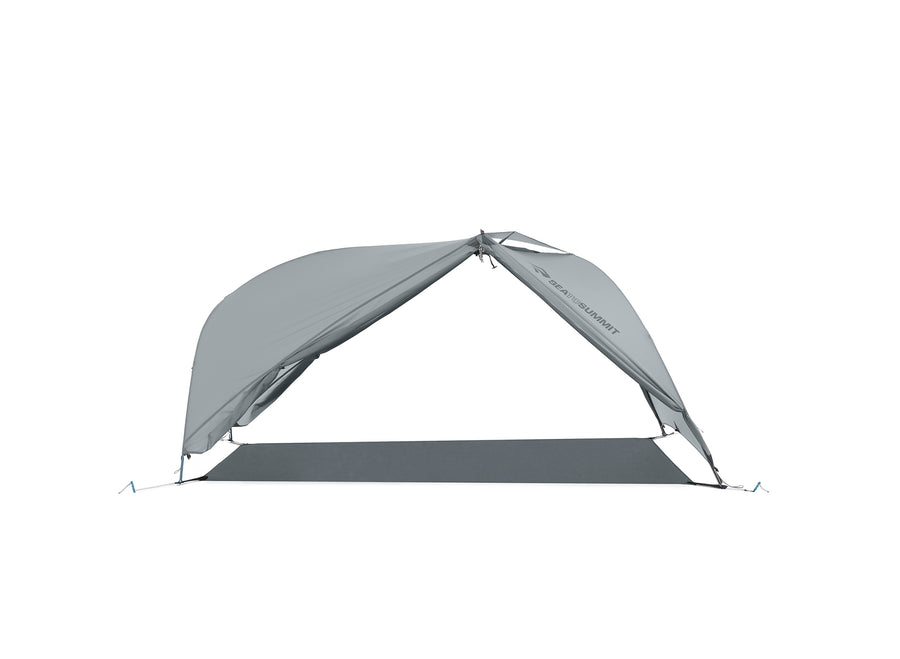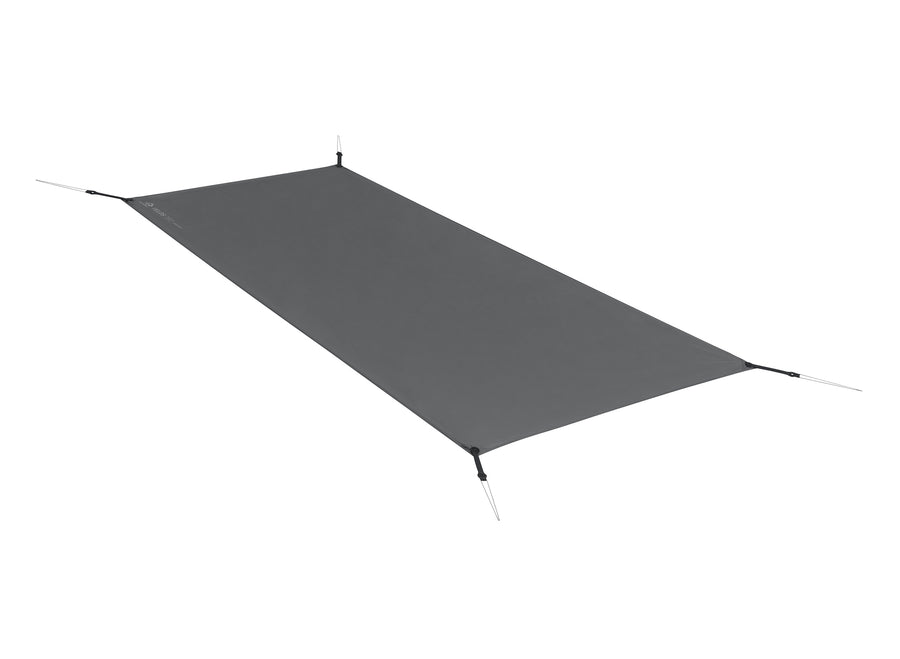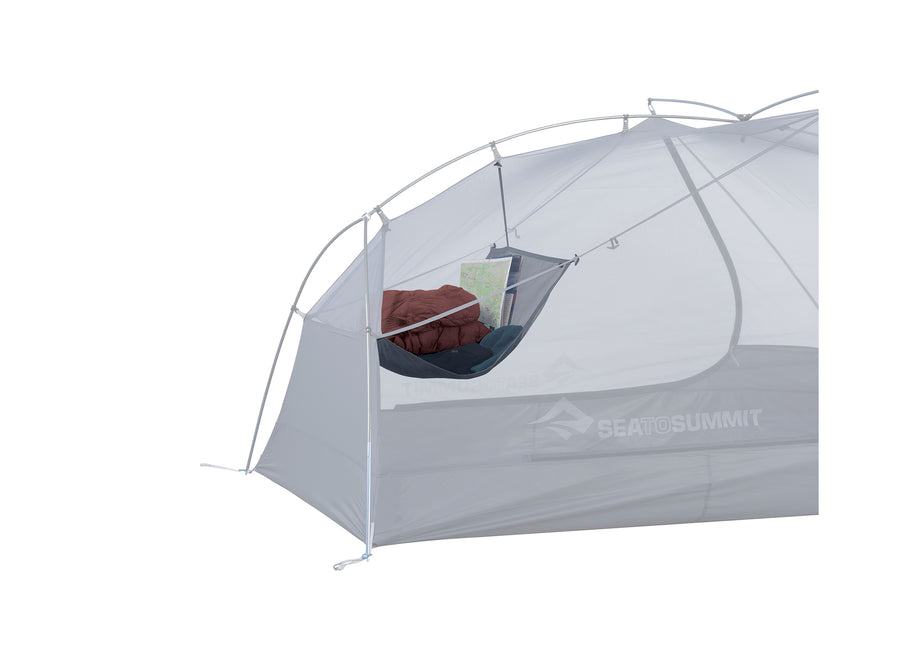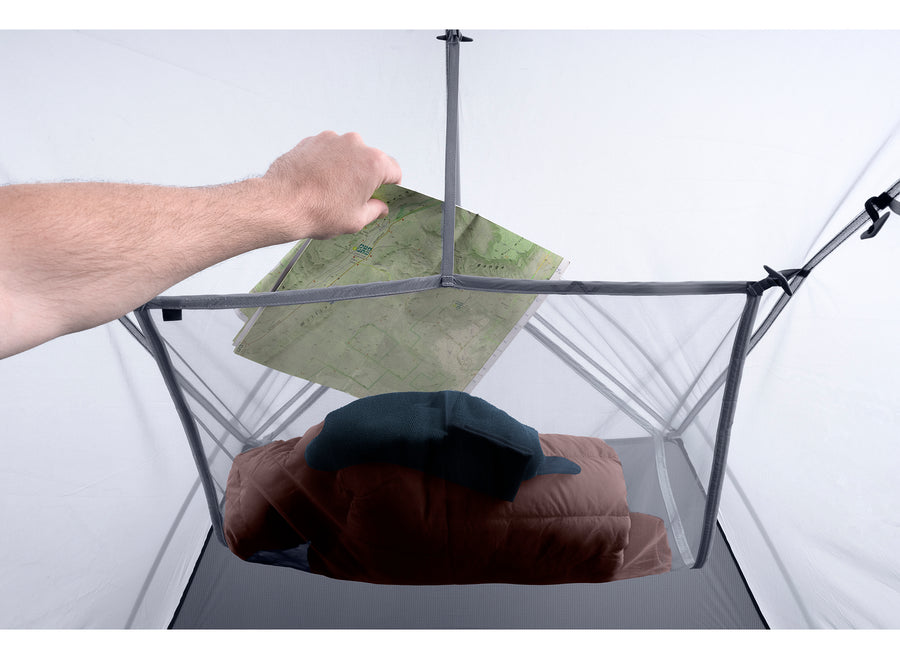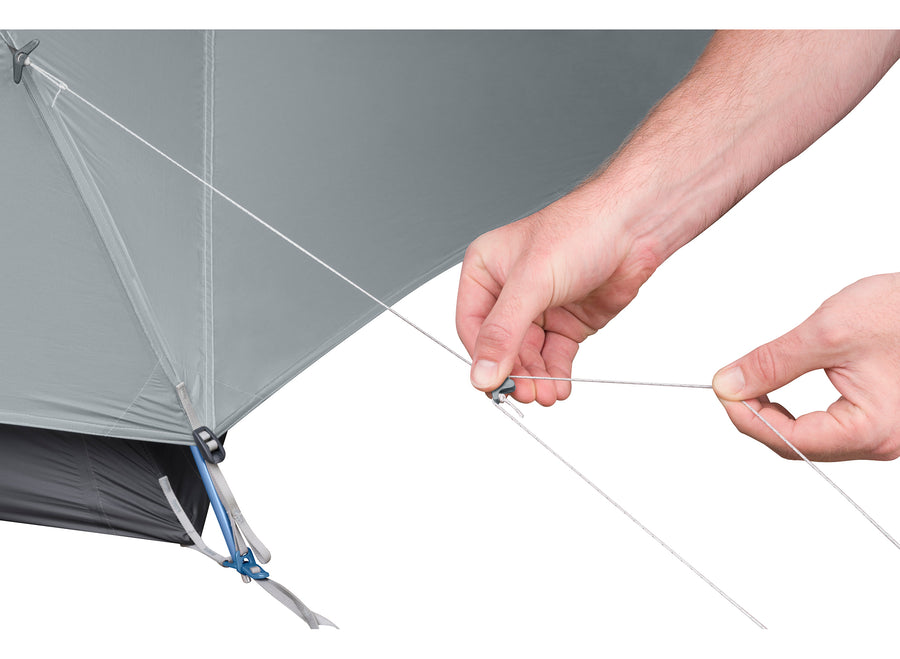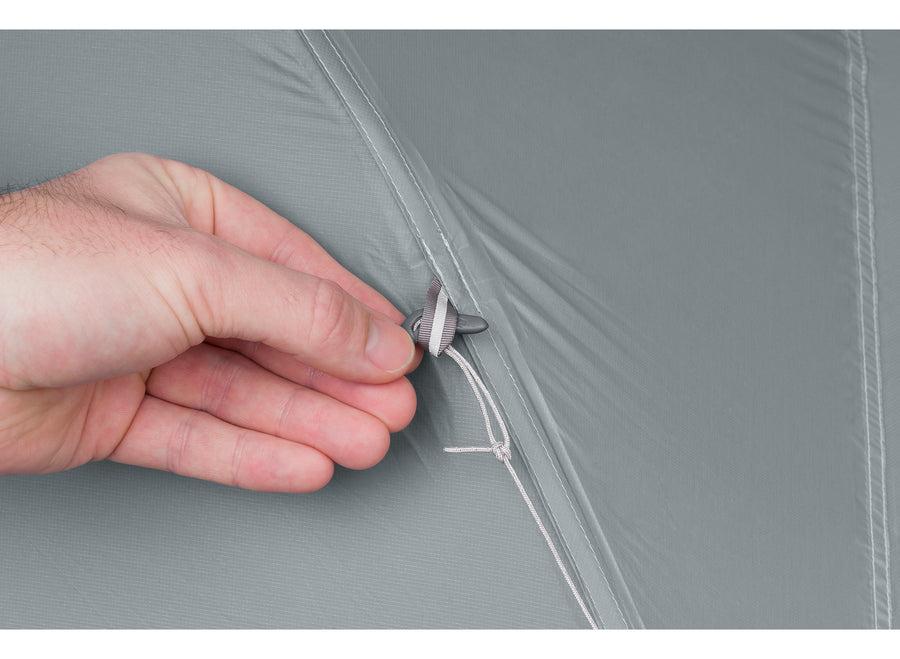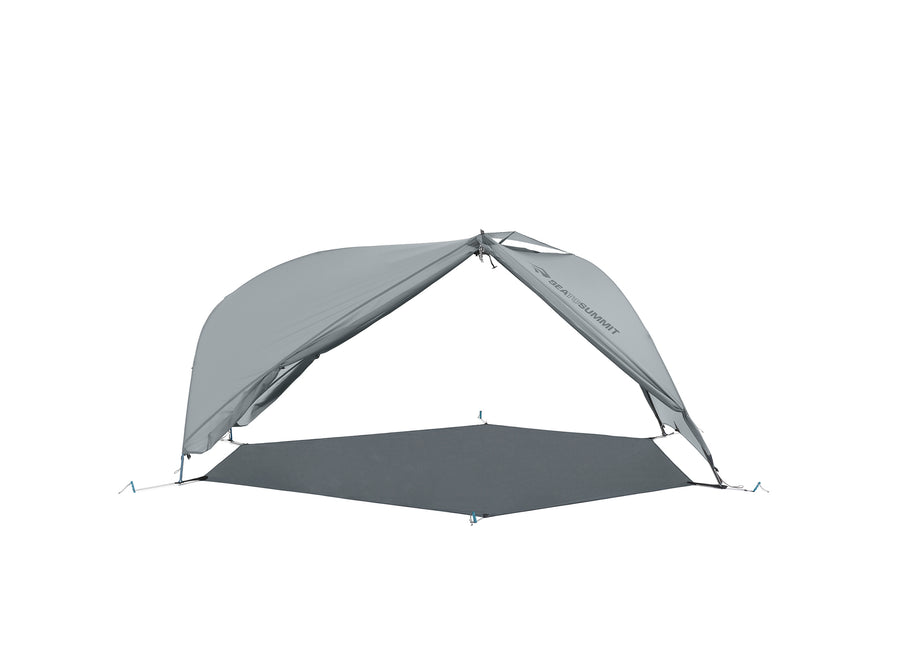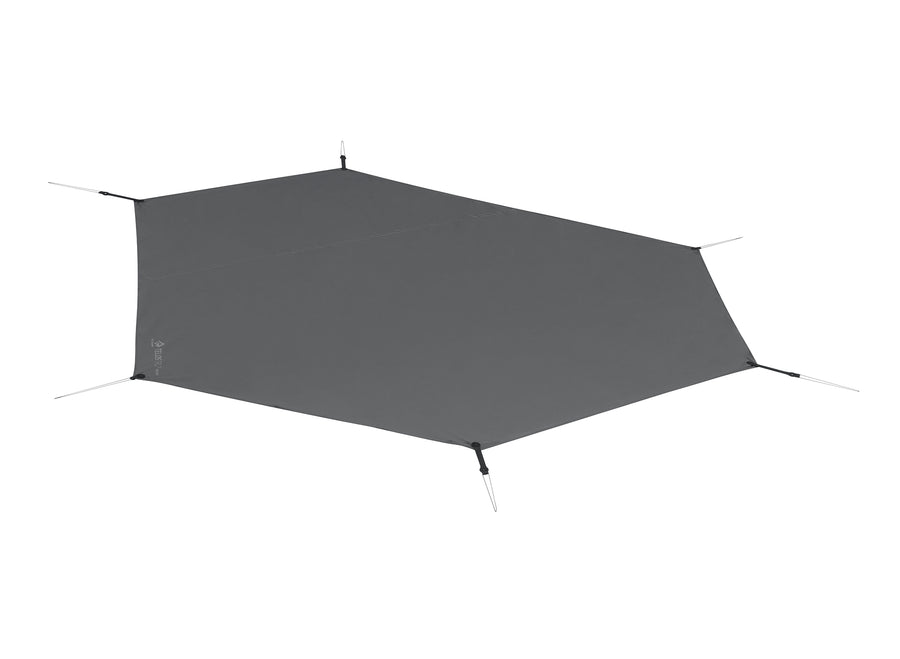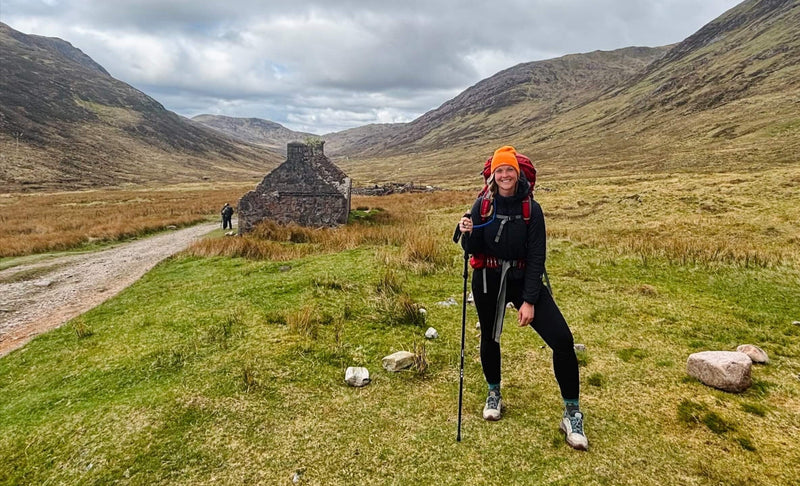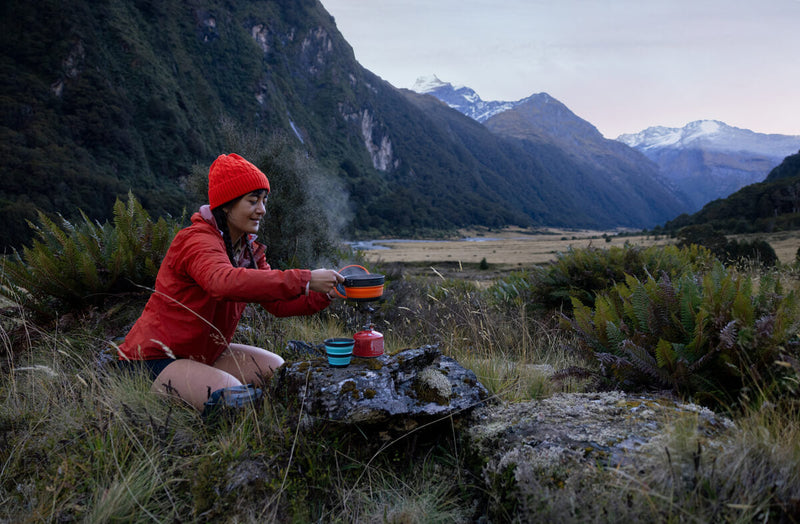Just how waterproof is waterproof?
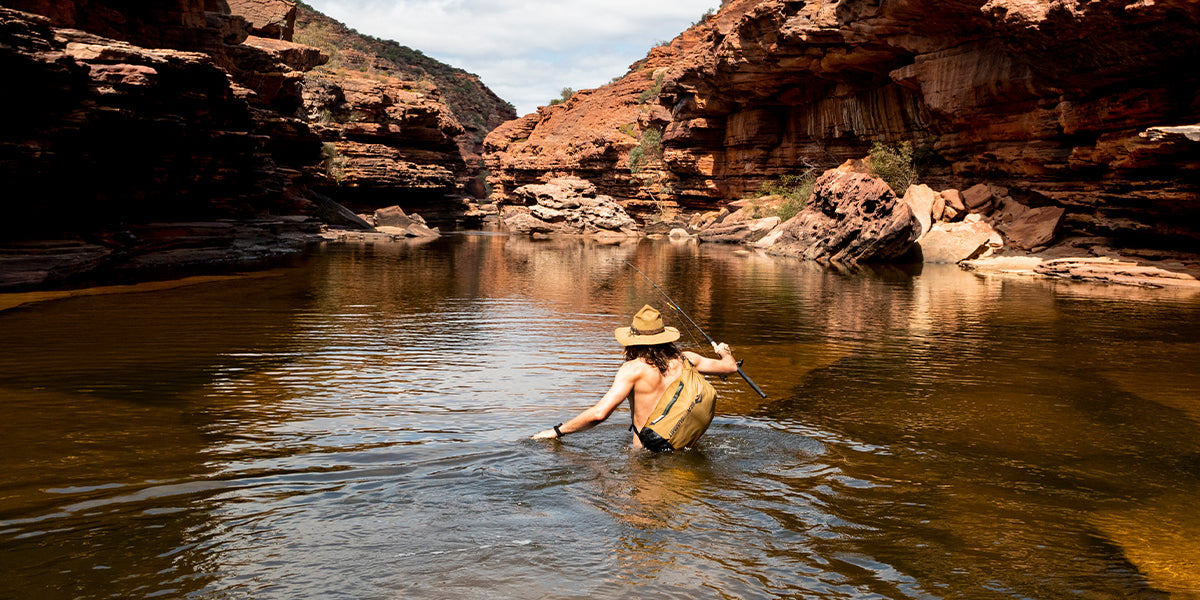
Sea to Summit is the brand leader in dry storage. We sell more dry bags and compression dry bags than any other brand in North America. So – we know a thing or two about making products waterproof.
As a general rule of thumb, gear that is designed to be waterproof will have seams which are seam-taped or welded. Products without this type of seam construction are usually water-resistant rather than waterproof.
This blog sets out to answer the question how waterproof our Tarps, rainfly, and floor of our Ikos tents are.
Sometimes, you’ll hear a comment that a product must be absolutely waterproof. But there’s clearly a difference between “garden hose” and “fire hose” waterproof. So ‘waterproof’ is a scale, not an absolute. Fortunately, there’s a simple way of quantifying this.
How much pressure will a fabric sustain before water forces it’s way through the weave/waterproofing layer?

This resistance to water pressure is called a ‘hydrostatic head’, or sometimes ‘water head’. (In many countries, a ‘waterproof’ fabric must exceed a certain minimum hydrostatic head – the USA does not have a generally agreed-on definition for waterproof.)
Here’s what hydrostatic head means: Imagine stretching a piece of fabric across the base of a tube (so tightly that water cannot leak out around the seal). Now fill the tube with water. If the water forces its way through the fabric when the tube is filled to 1 meter, the hydrostatic head for that fabric is 1,000mm. Five meters of water in the tube and the hydrostatic head would be expressed as 5,000mm. And so on.
How waterproof a fabric needs to be will vary depending on conditions. A tent floor which is waterproof enough for high-and-dry Southern California may be inadequate for boggy campsites in New Zealand. A dry sack which works well to keep rainwater off of gear and clothing inside a backpack may be inadequate for whitewater rafting.
Here are some fabrics used in our products, and how waterproof (hydrostatic head) they are:
Hydraulic Dry Pack Pro laminate will support a significant hydrostatic pressure, well over 10,000mm. They are therefore waterproof even in extreme conditions.
eVac Dry Bags and Compression Dry Bag LW fabric will support 10,000mm. They are therefore ideal for general use including boating.
eVac Compression Dry Bag UL fabric will support over 2,000mm. This is not sufficiently waterproof for river/ocean usage, so we describe them as ‘not designed for boating/marine use’.
Alto rainfly fabric supports 1200mm. This is sufficient for camping in dry to damp conditions, but in boggy environments you will need a footprint. The floor of the Alto Plus tents will support 2500mm, adequate for wet conditions.
Telos rainfly fabric supports 1200mm. Adequate for wet campsites. For really wet conditions, add a footprint. The floor of the Telos Plus tents will support 4000mm, sufficient for really boggy conditions.
Ikos tent floor fabric will support 4000mm. This is more than adequate for really wet conditions, and it is much higher than most tent floor fabrics used in the comfort backpacking/car camping segment.
Escapist Tarp and Ultra-Sil Nano Tarp Poncho fabric support 1200mm. The Nylon Tarp Poncho has a hydrostatic head of 2000mm.
Roll-Top Closure
The hydrostatic head of a dry bag fabric is only one factor to consider when thinking about keeping things dry. Most dry bags use a roll-top closure – it’s important to understand that this closure will only support a relatively modest amount of water pressure. With any brand of dry bag, water may begin to seep through the closure if it is under water even at a shallow depth or for a significant period – this often depends on how well the roll-top closure was sealed.
This is the reason why Sea to Summit puts advisories on its dry bags and dry sacks explaining that they are not suitable for submersion use, and why ‘double bagging’ of sensitive or electronic devices is essential.
(There are circumstances where a hard case with an O-Ring seal is a more appropriate for storing sensitive gear in very wet or very cold conditions. Sea to Summit doesn’t make hard cases, but being a relentless ally to our end-users means that we recommend these cases in applications where they will perform better than a roll-top dry bag)
Tear Strength/Abrasion Resistance in Dry Bags
Another factor to bear in mind is the tear strength/abrasion resistance of a fabric. Very light dry bags such as the Ultra-Sil Dry Bags are not intended for the sharp or rough surfaces found in paddling.
What if the hydrostatic head isn’t listed?
Be skeptical of waterproof gear that is offered for sale without this vital piece of information. Most responsible companies provide this measurement – make sure you know the hydrostatic head of a fabric prior to making a purchase of any piece of gear designed to protect against wet situations – dry sacks, rain jackets, and (most particularly) tent floors.
A product can be made of waterproof fabric but not have tape-sealed seams – and therefore will only be water resistant, not waterproof.
Not all coatings and laminates are created equal – some of these waterproof barriers may have an acceptable hydrostatic head when new, but will wear out after a few years. Sea to Summit fabrics have a proven track record of going the distance.
Choosing the right gear is key to making sure your experiences in the outdoors are safe and enjoyable. At Sea to Summit, we believe in being completely transparent about the performance and the limitations of our equipment: we’re your relentless ally in every adventure.
What else do I need to know?
A product can be made of waterproof fabric but not have tape-sealed seams – and therefore will only be water resistant, not waterproof.
Not all coatings and laminates are created equal – some of these waterproof barriers may have an acceptable hydrostatic head when new, but will wear out after a few years. Sea to Summit fabrics have a proven track record of going the distance.
Choosing the right gear is key to making sure your experiences in the outdoors are safe and enjoyable. At Sea to Summit, we believe in being completely transparent about the performance and the limitations of our equipment: we’re your relentless ally in every adventure.
